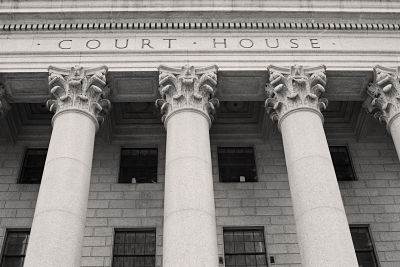In a criminal trial, the defendant has the right to introduce evidence that may serve to undermine the state’s case against them. This right is not unlimited, as there are a number of restrictions on the types of evidence that may be admissible at trial. One such restriction that specifically applies to defendants facing sex crimes allegations is Texas Rule of Evidence 412, which is commonly known as the “Rape Shield” law.
Essentially, Rule 412 states that in a sexual assault prosecution, the following evidence is generally not admissible:
- reputation or opinion evidence of a victim’s past sexual behavior; or
- specific instance of a victim’s past sexual behavior.
As with most rules, however, there are exceptions to the rape shield law. A defendant may be allowed to introduce evidence regarding “specific instances of a victim’s past sexual behavior,” if the following conditions are met:
- The defendant asks the judge to admit the evidence outside of the presence of the jury.
- The evidence rebuts or explains scientific or medical evidence previously introduced by the prosecution, demonstrates consent to past sexual behavior with the defendant, illustrates the victim’s motive or bias, serves to impeach the victim’s credibility, or is otherwise
“constitutionally required to be admitted.” - The judge determines the “probative value” of the evidence will not outweigh the “danger of unfair prejudice.”
Appeals Court: Accuser Had No Reason to Lie About Grandfather’s Sexual Abuse
A recent decision from the Texas 10th District Court of Appeals, Bullock v. State, illustrates how the rape shield law works in practice. In this case, a jury convicted the defendant of three counts of multiple sex crimes against his granddaughter, who was under the age of 14 at the time of the alleged incidents. At trial, the defendant maintained the accuser fabricated the allegations against him. He sought to introduce evidence of the accuser’s prior sexual conduct, dating back to when she was 12, insisting this would demonstrate the granddaughter made up the sexual abuse allegations “to deflect any possible repercussions or embarrassment which might have occurred” if her parents learned the truth about her past.

Both the trial court and the 10th District held this evidence was properly excluded under Rule 412. The 10th District noted the defendant’s argument was undercut by the fact the accuser admitted her prior sexual conduct to her parents some 5 years before accusing the defendant. It was therefore unlikely she had a “bias or a motivation to lie” about the defendant’s conduct, which would create an exception under the rape shield law. And in any event, the appeals court said “whatever probative value the evidence has, if any, is not outweighed by the danger of unfair prejudice,” and therefore should not have been admitted at trial in any event.
Speak with a Houston Sex Crimes Defense Lawyer Today
Individuals facing sex crimes charges often face additional legal hurdles when attempting to mount a defense. A qualified Houston criminal defense lawyer can advise you on these pitfalls and provide you with zealous legal representation. Contact the Law Offices of Tad Nelson & Associates today in Houston, Galveston or League City if you need to speak with an attorney right away.